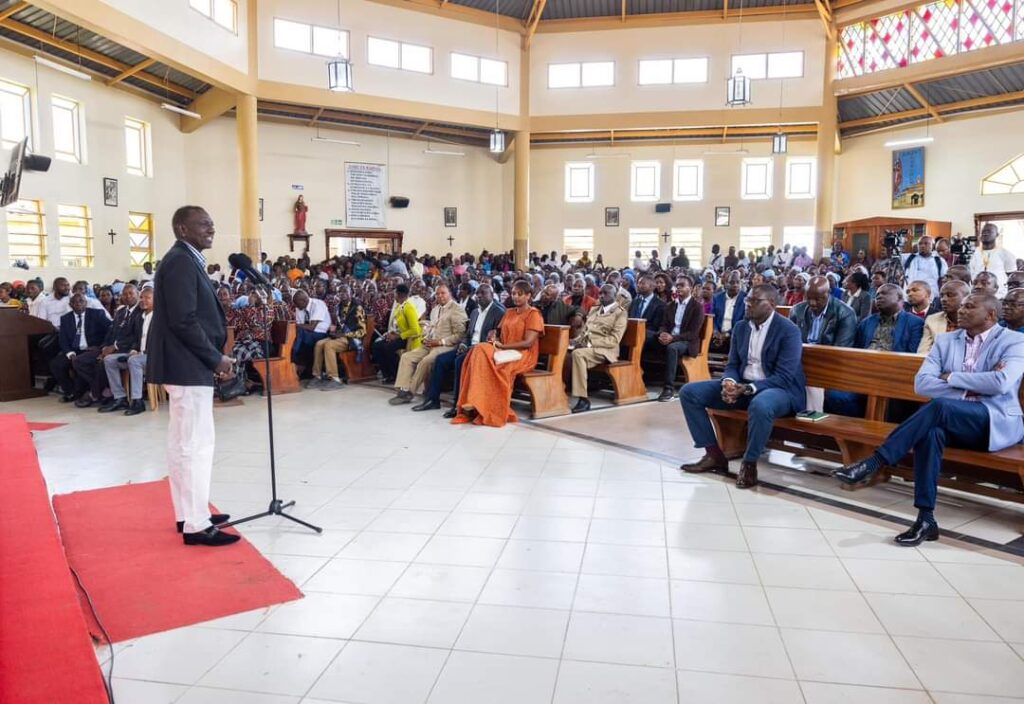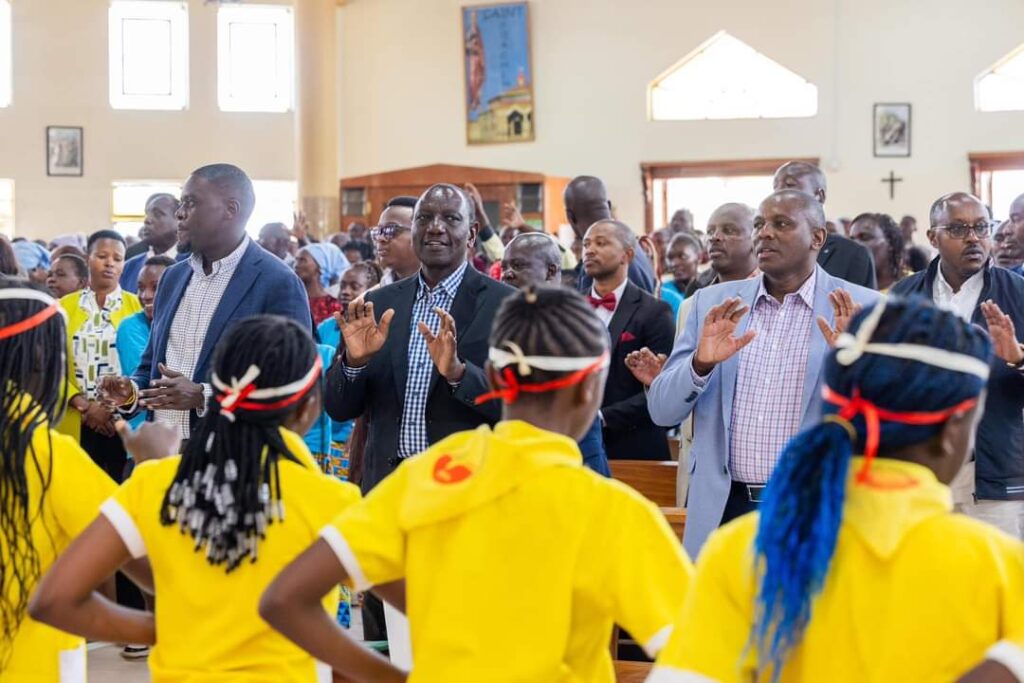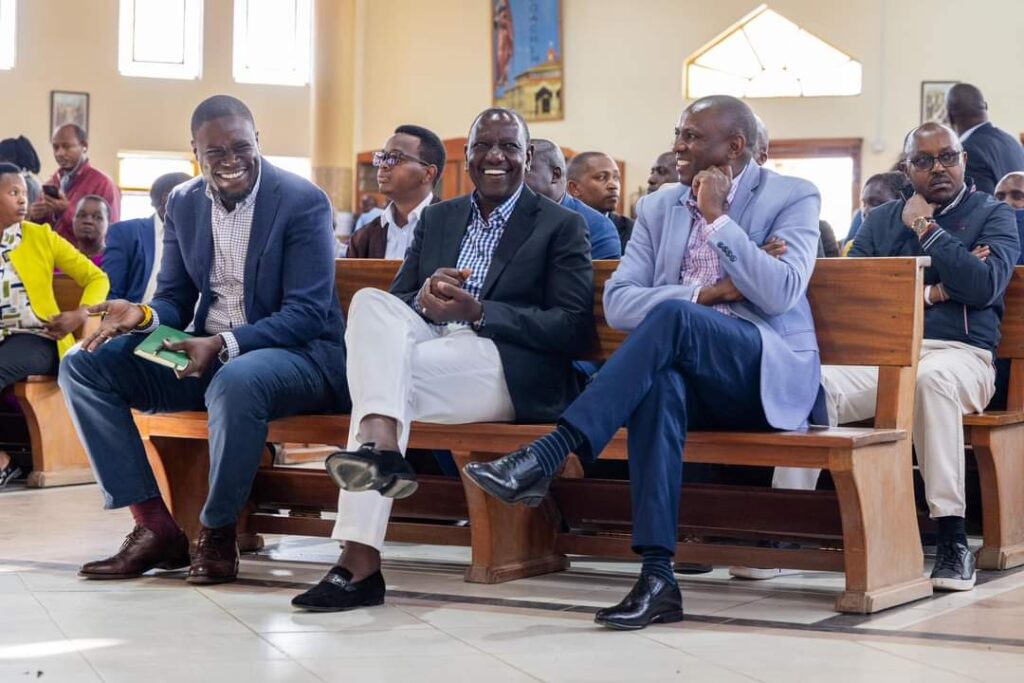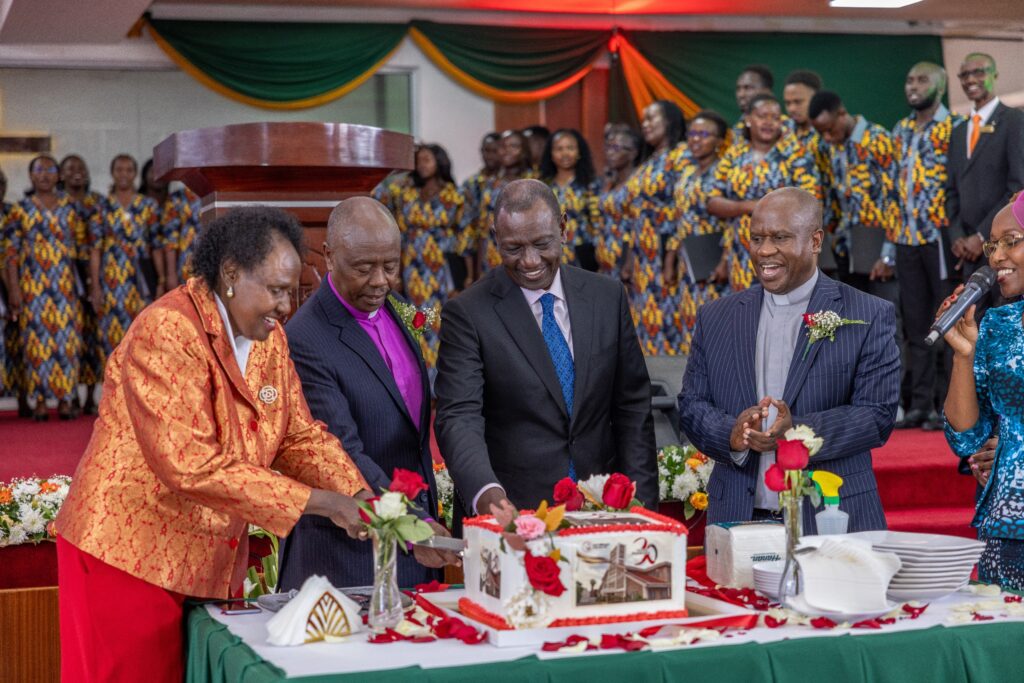President William Ruto’s Sunday appearance at Soweto Catholic Church has sparked controversy. Critics view his generous donations as an attempt to deflect serious concerns raised by Catholic bishops.

President William Ruto on Sunday, 17th November 2024 addressing Congregats at Soweto Catholic Church
The presidential charm offensive comes barely three days after a scathing critique. The Kenya Conference of Catholic Bishops (KCCB) had accused his government of perpetuating lies. Instead of addressing the core issues, Ruto opted for a financial solution. He dished out millions in church donations during the Sunday service.
The President’s largesse included a Ksh5 million contribution to a priest’s house. He added Ksh300,000 for children’s choir uniforms. These donations appear to contradict his directive. Ruto had previously banned government officials from participating in harambees.
Political analysts view this move as a classic diversionary tactic. The President seemingly chose to paper over deep-seated issues with monetary gifts. The Catholic bishops’ criticism touched on fundamental concerns. They highlighted the devastating impact of the high cost of living on ordinary Kenyans.

Rather than outlining concrete solutions, Ruto offered vague assurances. “I have heard the message from our bishops,” he said, without specific commitments. The timing of his church visit raises questions about sincerity. It appears more like damage control than genuine engagement with the bishops’ concerns.
Notable in his response was the absence of clear policy measures. The President didn’t address how he plans to tackle the economic challenges. The Catholic Church’s criticism went beyond economic issues. They accused the government of fostering a culture of deception.

Instead of tackling this serious allegation head-on, Ruto chose a softer approach. His church appearance focused on fellowship rather than accountability. The donation strategy has drawn scepticism from political observers. Many see it as an attempt to buy goodwill rather than address systemic issues.
Catholic bishops have historically played a crucial watchdog role. Their recent statement reflects growing frustration with government performance. The church leadership highlighted specific governance concerns, including the administration’s handling of public resources.
Ruto’s response appears to follow a familiar pattern. Critics note his tendency to deflect criticism through public displays of generosity. The President’s approach raises questions about governance style. It suggests a preference for quick fixes over substantial policy changes.
His choice of venue also appears strategic. Soweto Catholic Church serves ordinary citizens in Nairobi’s Kayole area. This grassroots approach seems designed to bypass church hierarchy, potentially undermining the bishops’ role as spiritual leaders.

The Catholic Church maintains significant influence in Kenya. Its statements on governance issues often shape public opinion. Ruto’s administration faces mounting pressure for real change. Sunday’s financial gestures may not be enough to address deeper concerns.
The bishops’ criticism reflected widespread public sentiment. Many Kenyans struggle with basic needs amid rising living costs. Opposition leaders have seized on the Catholic Church’s stance, viewing it as validation of their critiques of Ruto’s leadership.
The President’s response suggests a misunderstanding of the issues. Financial donations cannot substitute for sound economic policies. His actions mirror previous responses to criticism. Ruto often employs charm offensives when faced with serious challenges.
The Catholic bishops remain unlikely to be swayed by such gestures—their concerns centre on systemic issues affecting millions of Kenyans.
Questions persist about the source of donation funds. This comes amid broader concerns about government spending. Political commentators note the irony in Ruto’s approach. His generous donations contrast sharply with citizens’ economic struggles.
The President’s strategy may backfire in the long run. It could reinforce perceptions of a government out of touch with reality. Catholic leaders have maintained their critical stance. They continue to advocate for substantial policy changes. The coming weeks will test Ruto’s commitment to real reform. Monetary gifts alone cannot address the fundamental issues raised.
Citizens and church leaders await concrete action. The focus remains on addressing the cost of living crisis. The Catholic Church’s influence extends beyond religious matters. Its moral authority carries weight in national discourse.
Ruto’s administration must move beyond symbolic gestures. Real solutions require policy changes and economic reforms. For now, the President’s response appears inadequate. His approach suggests a reluctance to engage with substantive criticism.
President William Ruto, Catholic Church criticism, KCCB statement, church donations controversy, governance concerns, cost of living crisis, political strategy, Catholic bishops, public opinion, economic challenges, government accountability, religious influence, political criticism, damage control, policy reform, Kenya politics, church-state relations,




















Its like you read my mind You appear to know so much about this like you wrote the book in it or something I think that you can do with a few pics to drive the message home a little bit but instead of that this is excellent blog A fantastic read Ill certainly be back
Wow amazing blog layout How long have you been blogging for you made blogging look easy The overall look of your web site is magnificent as well as the content